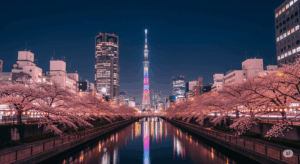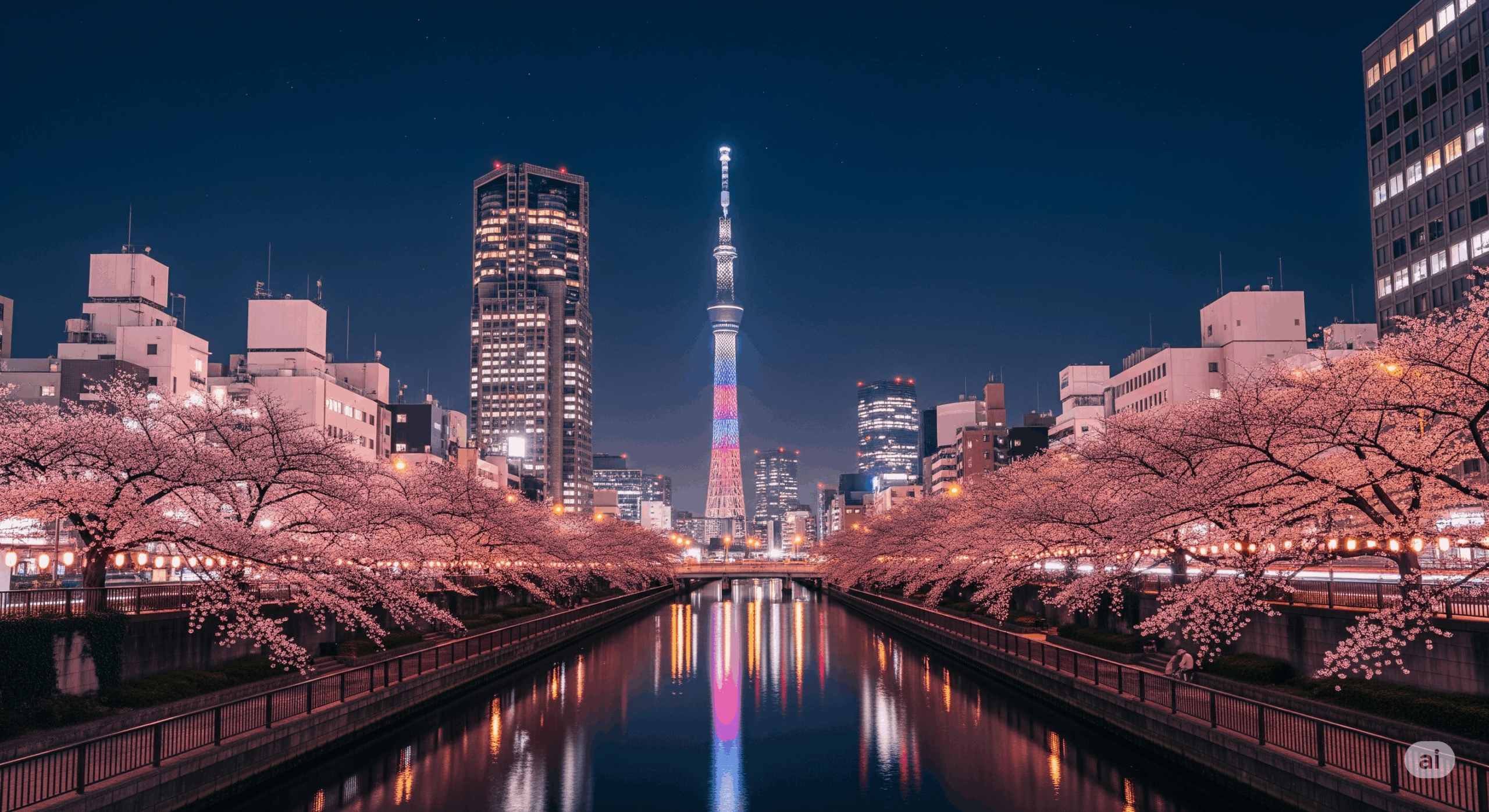Are you looking for an unforgettable night out in Japan, something truly unique to Japanese culture? Then look no further than karaoke! Forget what you know about karaoke bars in your home country; Japan takes it to a whole new level. It’s a private, personal concert hall where you and your friends can unleash your inner pop stars without judgment. This guide will tell you everything you need to know to dive into the wonderful world of karaoke in Japan!
What is Karaoke (カラオケ) in Japan?
In Japan, karaoke is much more than just singing along to a song. It’s a national pastime, a popular way for friends, colleagues, and even families to relax, de-stress, and have fun. Instead of a single stage in a public bar, Japanese karaoke operates in private rooms called “karaoke boxes” (カラオケボックス). These soundproofed rooms come equipped with comfortable sofas, a large TV screen, microphones, and a song selection machine (often a touch panel called a “denmoku”).
Imagine this: My friend, Sarah, from New York, was skeptical at first. “Karaoke? Like, singing in front of strangers?” she asked. I laughed and told her, “No, Sarah, in Japan, it’s just us! You get your own private room.” By the end of the night, after belting out 90s pop hits and laughing until our sides hurt, she declared it the best night of her trip!
Why You MUST Try Karaoke in Japan
- Private Rooms: No stage fright! You can sing your heart out, dance, and even try out funny voices without feeling self-conscious in front of strangers.
- Vast Song Selection: From the latest J-Pop hits to classic Western rock, R&B, and pop, you’ll find an extensive library of songs in multiple languages. Many systems support English, Korean, and Chinese songs.
- Food and Drink Service: Most karaoke boxes offer a full menu of food and drinks, from light snacks and soft drinks to full meals and alcoholic beverages, delivered right to your room.
- Costumes and Props: Some places even offer fun costumes and props for rent to enhance your performance and add to the laughter!
Choosing a Karaoke Box: Popular Chains
You’ll find karaoke boxes everywhere in Japan, especially in entertainment districts. Here are some of the most popular chains you’ll likely encounter:
- Big Echo (ビッグエコー): One of the largest and most well-known chains, offering clean rooms, a wide song selection, and good food/drink options.
- Joysound (ジョイサウンド): Famous for its massive song library and high-quality sound systems.
- Karaoke Kan (カラオケ館): Another ubiquitous chain, often featuring multi-story buildings with various room types.
- Uta Hiroba (歌広場): Known for being budget-friendly, especially during daytime hours, and often offering free soft drink bars.
- Pasela Resorts (パセラリゾーツ): A slightly more upscale option, known for themed rooms, excellent food, and often offering services like honey toast.
How to Enjoy Karaoke: A Step-by-Step Guide
1. Checking In at the Reception
- State Your Group Size: Tell the staff “Ni-mei desu” (2 people), “San-mei desu” (3 people), etc. (二人です、三人です).
- Choose Your Time/Plan: You’ll usually choose between a “time-based plan” (時間制 – jikan-sei) or a “free time plan” (フリータイム – free time). Free time typically lasts until closing or a set evening hour and is often more economical if you plan to stay long.
- Select Your Drink Plan:
- One Drink (ワンドリンク制 – one drink-sei): You must order at least one drink per person.
- Drink Bar (ドリンクバー – drink bar): An all-you-can-drink soft drink bar (often self-service).
- All-You-Can-Drink (飲み放題 – nomihoudai): Unlimited alcoholic and non-alcoholic drinks for a set period. This is a popular choice for groups!
- Get Your Room Key/Number: The staff will assign you a room number and give you instructions.
2. Inside Your Private Room
- Get Familiar with the Denmoku: This is your remote control for selecting songs. Most modern denmoku have touch screens and multiple language options. Look for an “English” or “Language” button.
- Find Your Songs: You can search by artist name, song title, or even by singing parts of the song. Remember to select the correct language filter!
- Queue Your Songs: Once you find a song, press the “reserve” (予約 – yoyaku) button to add it to the queue.
- Adjust the Settings: Use the denmoku to adjust microphone volume, music volume, key (pitch), and tempo to suit your singing style.
- Order Food & Drinks: Many denmoku systems allow you to order directly from the screen, or you can use an in-room phone to call reception.
3. Singing and Fun!
- Don’t Be Shy: This is your private space! Sing loud, dance, and just have fun.
- Take Turns: Share the microphones and give everyone a chance to shine.
- Enjoy the Food and Drinks: Sip on your beer or munch on some karaage (fried chicken) between songs.
4. Checking Out
- Time Warning: The system will usually give you a warning 10-15 minutes before your time is up.
- Head to the Cashier: When your time is finished, head back to the reception desk to pay. They’ll confirm your room number and present the bill.
- Payment: Most places accept cash and major credit cards.
Estimated Costs (Per Person)
Karaoke prices vary greatly depending on the time of day, day of the week, and the plan you choose. Here’s a rough guide:
- Daytime (Weekday): ¥500 – ¥1,500 per hour (often includes a drink bar). “Free time” daytime plans can range from ¥1,000 – ¥2,500.
- Evening/Nighttime (Weekday): ¥1,500 – ¥3,000+ per hour. “Free time” nighttime plans can be ¥2,500 – ¥5,000+ (often with all-you-can-drink alcohol).
- Weekends & Holidays: Prices are generally higher than weekdays.
Remember that the longer you stay, the more economical the “free time” plans become, especially if you opt for the all-you-can-drink alcohol package.
Important Tips for Foreign Visitors
- Reservations: On Friday and Saturday nights, especially in popular areas, karaoke boxes can get very busy. It’s a good idea to make a reservation if you have a specific time or chain in mind, though walk-ins are usually fine during weekdays or less peak hours.
- No Outside Food/Drink: Most karaoke boxes have a strict policy against bringing in outside food or beverages.
- Manners: While you’re in a private room, avoid being excessively loud in the hallways. Also, be mindful of the time limit and exit promptly when your session is over.
Conclusion
Karaoke in Japan is an essential part of the modern Japanese experience and a fantastic way to bond with friends, new and old. It’s a chance to let loose, make incredible memories, and truly immerse yourself in a fun aspect of Japanese nightlife. So, next time you’re in Japan, gather your friends, pick your favorite songs, and get ready to sing your heart out!


コメント